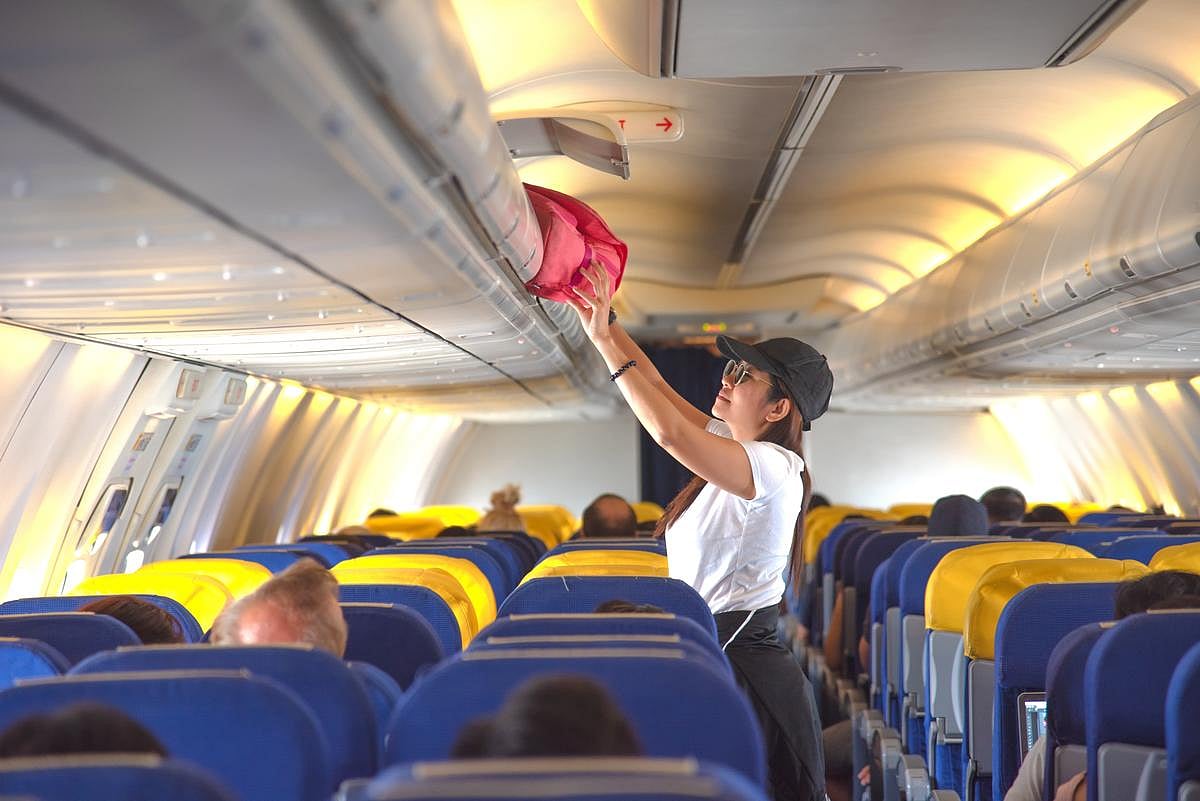Get Healthy!

- Denise Maher
- Posted January 13, 2025
How To Handle Travel Stress
Traffic, delays, disruptions due to storms or wildfires, and other surprises may be part of your next business or pleasure trip. In short: Travel is more stressful (and more expensive) than ever.
But you don't have to submit to the anxiety and upset, Dr. Asim Shah, professor and executive vice chair in the Menninger Department of Psychiatry and Behavioral Sciences at Baylor College of Medicine, said in a news release from Baylor College of Medicine.
Disruptions are unavoidable, but your response is not. If you can remain calm, the chaotic travel twists won't feel so stressful.
We've rounded up a few expert-backed tips for coping with stress, anxiety, and the chaos that comes with modern travel.
1. Know your triggers
What are your travel-related triggers? People who experience anxiety have different sensitivities. If you pinpoint those triggers ahead of time, you will likely have a smoother travel day. “Triggers might include the uncertainty of traffic, flight delays, being in public places or seeing friends and family for the holidays,” Shah explained in a news release from the school.
The upside? “Based on your triggers, you can make a plan,” Shah advises.
Does traveling alone worry you? Travel with a partner or buddy. Talk to your companion about your fears so they can help you alleviate stress. Use your stress management techniques, such as listening to soothing music, to mitigate the anxiety.
2. Prep well
Get a good night’s rest the night before traveling, and eat healthfully to take care of yourself, says Shah. Avoid drugs and alcohol -- as they cause instability and can exacerbate feelings of anxiety.
Consider exercising before your trip begins. The endorphins from exercise will calm you down and help rid anxiety and nervous energy, she says.
“Have a plan, distract yourself and reassure yourself that you are safe,” he said.
Those who are traveling shorter distances can opt for driving instead of flying, especially for those who experience aerophobia or fear of flying, according to Shah.
If you plan to travel by car, try not to drive during rush hour to limit upset over road rage, detours, and traffic.
Shah provides tips to prepare for delays.
Try to take morning flights and think about a backup flight in the event of cancelations.
Travel with airlines that will automatically re-book you for the next flight.
If your schedule permits, book your travel to arrive a day early so you avoid the risk of arriving at the last minute.
Purchase travel protection plans for expensive flights.
Take direct flights when possible and sign up for flight alerts to help prevent arriving to the airport early when there is a threat a major delay or cancelation.
If you check luggage, stash some clothes and important items in your handbag or carry-on tote in case your checked luggage is lost or delayed.
Bring items that will allow you to pass the time: read a book, watch a movie, catch up on work or anything else that will entertain and distract you.
“Don’t waste time – get to the airport early to prepare for long lines and parking issues,” he said.
3. Cope with others people's poor behaviors
Passenger disruptions have increased over the years, says Shah. Some common reasons for the rise in passenger intolerance include:
Flight delays and cancelations
Jam-packed flights: this may cause some tension as people are nervous to be around others
Substance (alcohol) abuse in the airport and on flights: passengers can get unruly when consuming substances in excessive quantities
Decrease in tolerance: people’s frustration is increasing and they may get worked up over small things
This combination of discontent and disruptions is directly related to the amygdala limbic system in the brain, which reacts abnormally to any situation like this. Rather than handling this physical and psychological distress in a calm manner, passengers may become vocal, rowdy and irritable.
“The flight crew should try to deescalate this type of situation with calmness, which is easier said than done," Shah said. Being calm, polite and professional can help to reduce the chaos and build allies among other passengers he noted in a press statement.
One disruptive passenger can cause anxiety and distress for the rest of the aircraft. If a passenger is being abusive, angry or offensive, a second passenger might intervene. According to Shah, passengers should not get involved as they have no authority and may escalate the situation. Stay calm and quiet and notify the air crew of the disruption. When the crew arrives to mitigate the chaos, offer support if they need it.
You can't control many things around you as you move through the world. But you can control your response to the stress and the disorder that can come with travel.
More information
National Geographic has articles with guidance on how to ease travel anxiety.
SOURCE: Baylor College of Medicine, news release; Nov. 20, 2023

